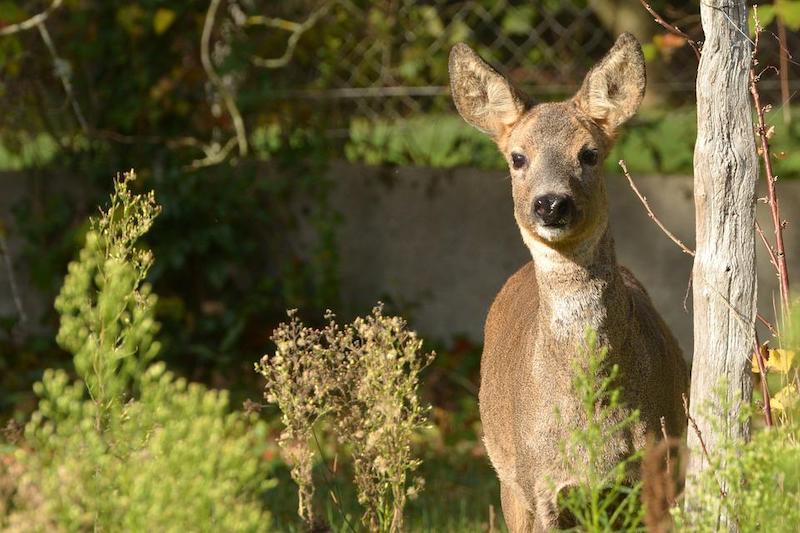Agapanthus is considered a deer-resistant plant and is seldom nibbled by deer when more palatable options are present. Some gardeners in areas with high deer populations have reported that the deer have developed a taste for agapanthus, especially the flowers. Food options can be limited in the spring and fall, and deer are more likely to venture from their normal fare during those times. In addition, the evergreen varieties may be particularly at risk in the winter if wandering herds are hungry and foraging for any greenery. Watch for damage to your agapanthus and consider adding protection if deer become a problem.

According to Rutgers University, agapanthus is seldom severely damaged on their rating scale from Rarely Damaged to Frequently Severely Damaged. Deer do not care for the bitter taste and thick texture of the leaves. However, several homeowners have said that deer mowed their agapanthus plants to the ground. So, the take-home message is that the food preferences of deer populations vary, and a hungry deer will eat just about anything.
| Rarely Damaged |
| Seldom Severely Damaged |
| Occasionally Severely Damaged |
| Frequently Severely Damaged |
Keeping Deer Away From Agapanthus
If deer are nibbling your agapanthus and other garden plants, consider installing a tall fence to obstruct the deers’ view of your garden. The fence should ideally be 8 ft tall, as deer can typically jump 6 ft. Another option is to use motion-activated sprinklers or lights that scare away approaching deer. Several deer repellents are commercially available including Deer Out and Bobbex, or you can make your own using eggs, garlic, hot sauce, or soap. Try planting deer-resistant flowers around your agapanthus, including daffodils and foxglove, which are toxic to deer.
Will Agapanthus Come Back After Deer Eat Them?
A healthy patch of agapanthus will be able to tolerate occasional grazing from deer. However, if your agapanthus is newly planted or struggling, you may want to protect it if deer are a problem in your area. The leaves are necessary for this plant to produce energy, and damage from deer could weaken the plant, reducing its ability to produce flowers the following year. Try putting a metal cage around the plant, or if it’s in a pot, move it to an area that is less accessible to deer.
Sources: Rutgers New Jersey Agricultural Experiment Station ‘Landscape Plants Rated by Deer Resistance’ 2018
 |
Author Jessica Mercer - Published 6-28-2022 |


